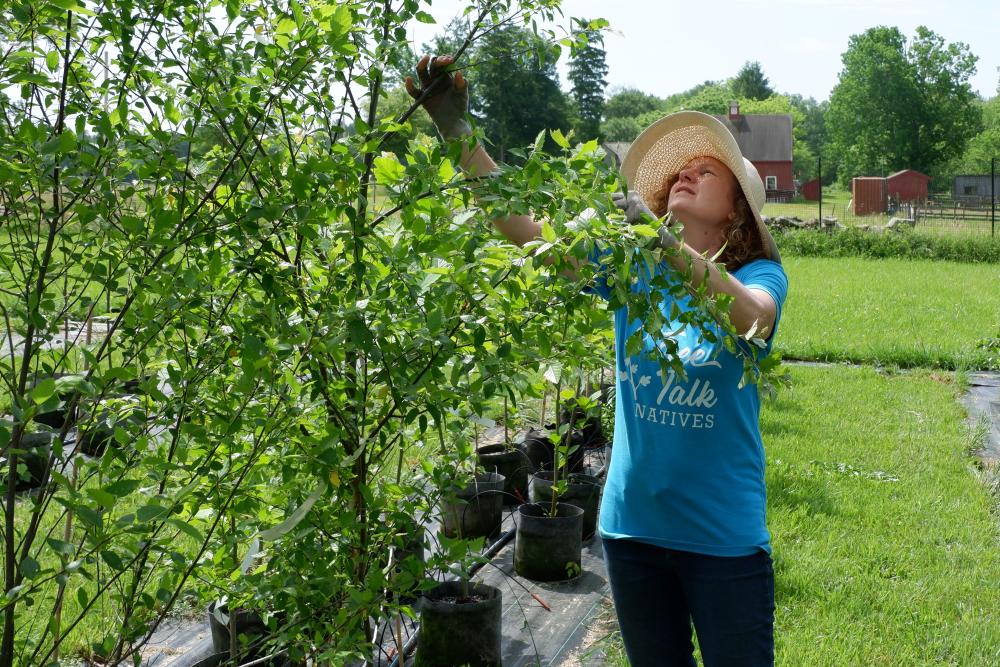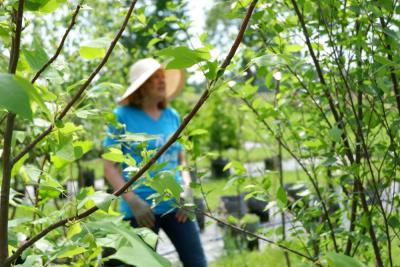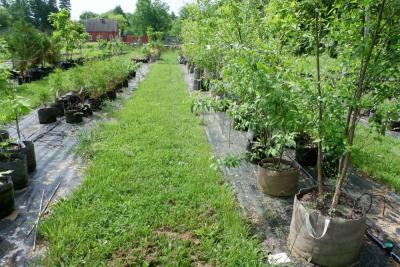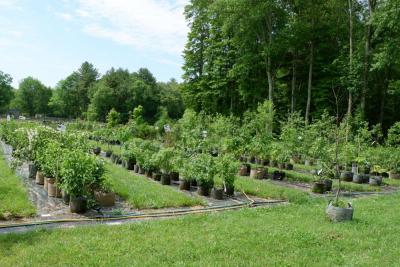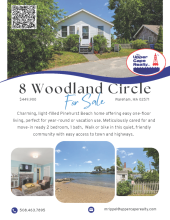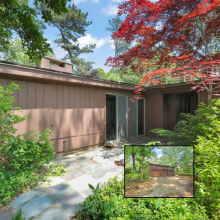Native plants bloom at Rochester nursery
ROCHESTER — When Jennifer Anderson first started selling plants at a farmers market, she didn’t always have the answers when people came to her booth with questions.
“I’d be Googling it,” Anderson said. “My daughter was like ‘Mom, you can’t do that. They’re just standing there waiting.’”
A few years later, she opened “Tree Talk Natives,” a nursery that specializes in trees and shrubs native to New England and the northeast. The outdoor plant store officially opened in its Rochester location in April, though it had operated prior in Maryland.
Amidst a sunny June soundscape of birdsong, the shout of a rooster to the south and the intermittent whir of a car coursing down Vaughan Hill Road like wind, Anderson picked the foliage off a pagoda dogwood.
The plant’s leaves had little spots on them, symptoms of a fungal disease, she said that Friday morning.
Anderson planned to set the affected plant aside and bring it back once the malady subsided. No Googling required.
“I find that mostly plants just need time,” she said.
Anderson’s switch from a career in writing to growing and selling native plants wasn’t immediate. At one point in between, she worked as an assistant at a horse farm.
“I loved it,” Anderson said. “I loved carrying the water buckets. I loved the gravel crunching underneath my boots. I loved the smell. I just loved everything about it.”
A former journalist and self-described “jumper-inner,” Anderson entered the realm of horticulture around 2020, she said. She took a master gardener course as well as a horticulture program at a Maryland community college.
A tree farmer introduced to Anderson became her mentor and encouraged her to start growing trees despite only having a quarter-acre of land at the time.
“I remember texting my husband, ‘I just ordered 200 tree seedlings,’” Anderson said.
Now, with row after row of trees and shrubs local to the American northeast, Tree Talk Natives — pesticide-free — is part of a movement to bring to home landscapes native plants rather than non-native, she said.
The frequent planting of non-native, invasive species is “wreaking havoc on the environment” and impacts food sources for insects, according to Anderson.
The store at 157 Vaughan Hill Road has received a positive response from patrons, according to Anderson, who said she’s still learning every day.
“It’s been good so far,” she said. “We hope it continues. We’re just constantly growing.”



